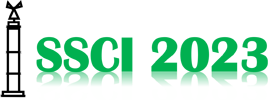IEEE MCDM 2023 aims to bring together scientists, engineers and students from around the world to discuss the latest advances in the field of CI applied to issues in MCDM.
Topics
Topics covered include applications of computational intelligence technologies, such as neural networks and learning algorithms, fuzzy systems, evolutionary computation, and other emerging techniques in the following or similar areas:
Multi-objective Search/Optimization (MOO)
- Multi-objective evolutionary algorithms
- Data-driven and model-based multi-objective optimization
- Multi-objective meta-heuristics (scatter, Tabu search, particle swarm optimization, ant colony etc.)
- Handling a large number of objectives
- Handling large-scale multi-objective problems
Multi-objective Machine Learning (MOML)
- Accuracy and complexity trade-off
- vAccuracy-interpretability, stability-plasticity dilemma
- Pareto-based ensemble generation
- Multi-objective parameter and structure optimization in deep learning
- Pareto-analysis of learning systems
Decision Making (DM) Techniques
- Preference elicitation and representation
- Aggregation/trade-off operators & algorithms
- Fuzzy logic based DM techniques
- Bayesian and other DM techniques
- Interactive Visualization (IV)
- Progressive aggregation methods
- Decision maker in the loop
Symposium Chairs
- Hemant Singh
h.singh@adfa.edu.au
UNSW Canberra, Australia - Kalyanmoy Deb
kdeb@msu.edu
Michigan State University, USA
Programme Committee
- Richard Allmendinger, University of Manchester, UK
- Juergen Branke, Warwick Business School, UK
- Carlos Coello Coello, CINVESTAV IPN, Mexico
- Richard Everson, University of Exeter, UK
- Jonathan Fiendsend, University of Exeter, UK
- Carlos Fonseca, University of Coimbra, Portugal
- Jussi Hakanen, University of Jyväskylä, Finland
- Hisao Ishibuchi, SUSTech, China
- Sanaz Mostaghim, Otto von Guericke University, Germany
- Tapabrata Ray, The University of New South Wales, Australia
- Tobias Rodemann, Honda Research Institute, Germany
- Hemant Singh, The University of New South Wales, Australia
- Markus Wagner, The University of Adelaide, Australia
- Handing Wang, Xidian University, China
- Bing Wang, The University of New South Wales, Australia
- Ke Shang, SUSTech, China
- Jesús Guillermo Falcón-Cardona, CINVESTAV IPN, Mexico
- Shelvin Chand, CSIRO, Australia
- Ahsanul Habib, IP Australia
- Julian Blank, Michigan State University, USA
